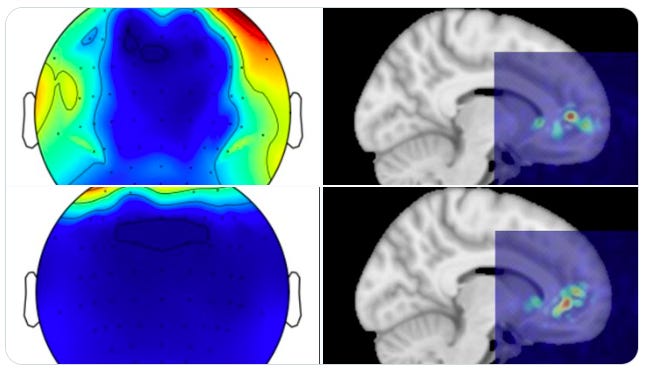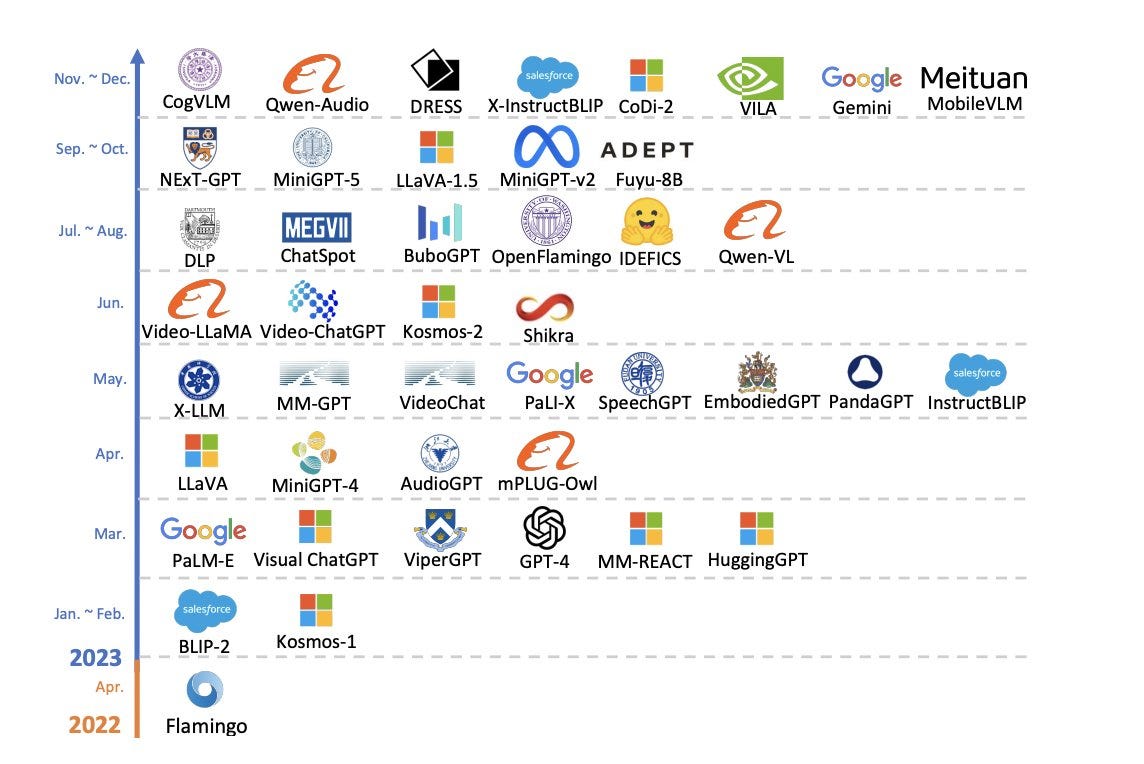OpenAI Reveals New Models, Drops Prices, and Fixes 'Lazy' GPT-4
Plus: Prophetic's AI entering in your dreams, The recent advances in Multimodal LLM.
Hello Engineering Leaders and AI Enthusiasts!
Welcome to the 198th edition of The AI Edge newsletter. This edition brings you OpenAI’s New Models, Drops Prices, and Fixes 'Lazy' GPT-4.
And a huge shoutout to our incredible readers. We appreciate you😊
In today’s edition:
.
🔥OpenAI reveals new models, drop prices, and fixes ‘lazy’ GPT-4💭Prophetic - This company wants AI to enter your dreams
🚀The recent advances in Multimodal LLM
📚Knowledge Nugget: ⭐Featuring ‘Unpacking AI's copyright problem’ by
Let’s go!
OpenAI reveals new models, drop prices, and fixes ‘lazy’ GPT-4
OpenAI announced a new generation of embedding models, new GPT-4 Turbo and moderation models, new API usage management tools, and lower pricing on GPT-3.5 Turbo.
The new models include:
2 new embedding models
An updated GPT-4 Turbo preview model
An updated GPT-3.5 Turbo model
An updated text moderation model
Also:
Updated text moderation model
Introducing new ways for developers to manage API keys and understand API usage
Quietly implemented a new ‘GPT mentions’ feature to ChatGPT (no official announcement yet). The feature allows users to integrate GPTs into a conversation by tagging them with an '@.'
Why does this matter?
The new embedding models and GPT-4 Turbo will likely enable more natural conversations and fluent text generation. Lower pricing and easier API management also open up access and usability for more developers.
Moreover, The updated GPT-4 Turbo preview model, gpt-4-0125-preview, can better complete tasks such as code generation compared to the previous model. The GPT-4 Turbo has been the object of many complaints about its performance, including claims that it was acting lazy. OpenAI has addressed that issue this time.
Prophetic - This company wants AI to enter your dreams
Prophetic introduces Morpheus-1, the world's 1st ‘multimodal generative ultrasonic transformer’. This innovative AI device is crafted with the purpose of exploring human consciousness through controlling lucid dreams. Morpheus-1 monitors sleep phases and gathers dream data to enhance its AI model.
Morpheus-1 is not prompted with words and sentences but rather brain states. It generates ultrasonic holograms for neurostimulation to bring one to a lucid state.
Its 03M parameter transformer model trained on 8 GPUs for 2 days
Engineered from scratch with the provisional utility patent application
The device is set to be accessible to beta users in the spring of 2024.
You can Sign up for their beta program here.
Why does this matter?
Prophetic is pioneering new techniques for AI to understand and interface with the human mind by exploring human consciousness and dreams through neurostimulation and multimodal learning. This pushes boundaries to understand consciousness itself.
If Morpheus-1 succeeds, it could enable transformative applications of AI for expanding human potential and treating neurological conditions.
Also, This is the first model that can fully utilize the capabilities offered by multi-element and create symphonies.
The recent advances in Multimodal LLM
This paper ‘MM-LLMs’ discusses recent advancements in MultiModal LLMs which combine language understanding with multimodal inputs or outputs. The authors provide an overview of the design and training of MM-LLMs, introduce 26 existing models, and review their performance on various benchmarks.
(Above is the timeline of MM-LLMs)
They also share key training techniques to improve MM-LLMs and suggest future research directions. Additionally, they maintain a real-time tracking website for the latest developments in the field. This survey aims to facilitate further research and advancement in the MM-LLMs domain.
Why does this matter?
The overview of models, benchmarks, and techniques will accelerate research in this critical area. By integrating multiple modalities like image, video, and audio, these models can understand the world more comprehensively.
Enjoying the daily updates?
Refer your pals to subscribe to our daily newsletter and get exclusive access to 400+ game-changing AI tools.
When you use the referral link above or the “Share” button on any post, you'll get the credit for any new subscribers. All you need to do is send the link via text or email or share it on social media with friends.
Knowledge Nugget: Unpacking AI's copyright problem
This interesting article by
discusses the copyright issues surrounding generative AI and predicts that the legal issues will eventually be resolved, leaving the bigger economic question of how AI impacts the creative industries.The article explores three key legal questions related to generative AI: training AI models on copyrighted data, copyright protections for AI-produced content, and whether AI-generated output infringes on existing copyright. The article also mentions the concept of fair use and the need for new financial arrangements to compensate creators. It highlights the need for new approaches and initiatives to address the challenges posed by AI and copyright.
Why does this matter?
This article highlights how resolving copyright challenges will shape how generative AI is ethically deployed. A balanced approach accommodating fair use while compensating creators will be key. Thoughtful legal frameworks and new economic models are needed to ensure generative AI benefits society.
What Else Is Happening❗
📈 Update from Hugging Face LMSYS Chatbot Arena Leaderboard
Google's Bard surpasses GPT-4 to the Second spot on the leaderboard! (Link)
🤝 Google Cloud has partnered with Hugging Face to advance Gen AI development
The partnership aims to meet the growing demand for AI tools and models that are optimized for specific tasks. Hugging Face's repository of open-source AI software will be accessible to developers using Google Cloud's infrastructure. The partnership reflects a trend of companies wanting to modify or build their own AI models rather than using off-the-shelf options. (Link)
🌐 Arc Search combines a browser, search engine, and AI for a unique browsing experience
Instead of returning a list of search queries, Arc Search builds a webpage with relevant information based on the search query. The app, developed by The Browser Company, is part of a bigger shift for their Arc browser, which is also introducing a cross-platform syncing system called Arc Anywhere. (Link)
🆕 PayPal is set to launch new AI-based products
The new products will use AI to enable merchants to reach new customers based on their shopping history and recommend personalized items in email receipts. (Link)
🎙️ Apple Podcasts in iOS 17.4 now offers AI transcripts for almost every podcast
This is made possible by advancements in machine translation, which can easily convert spoken words into text. Users testing the beta version of iOS 17.4 have discovered that most podcasts in their library now come with transcripts. However, there are some exceptions, such as podcasts added from external sources. As this feature is still in beta, there is no information available regarding its implementation or accuracy. (Link)
New to the newsletter?
The AI Edge keeps engineering leaders & AI enthusiasts like you on the cutting edge of AI. From ML to ChatGPT to generative AI and LLMs, We break down the latest AI developments and how you can apply them in your work.
Thanks for reading, and see you tomorrow. 😊







